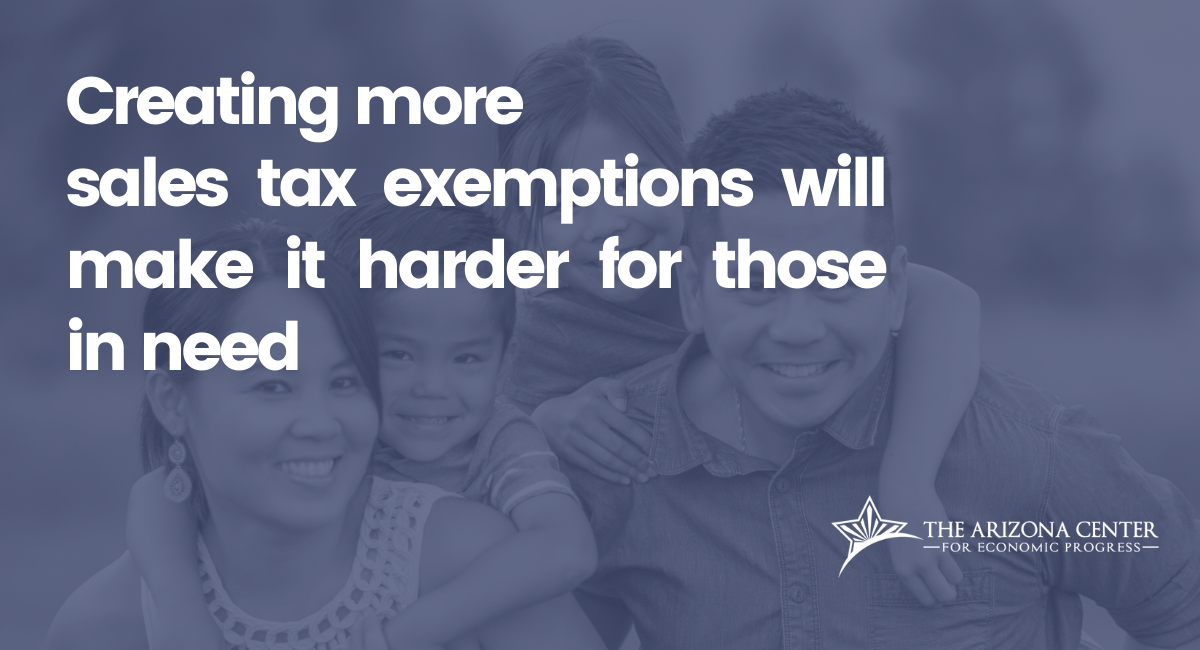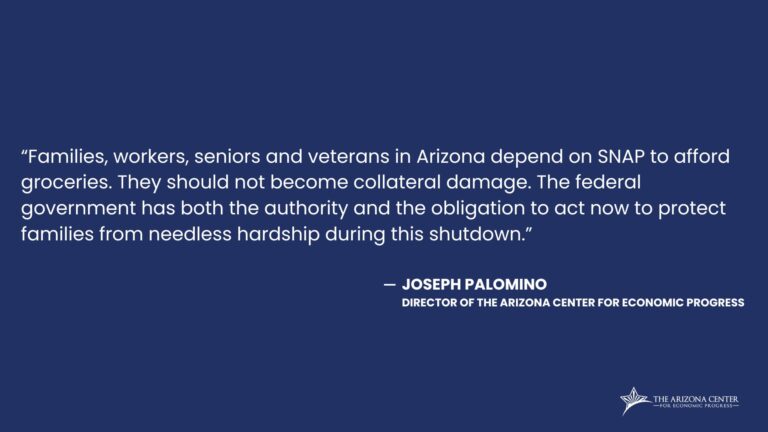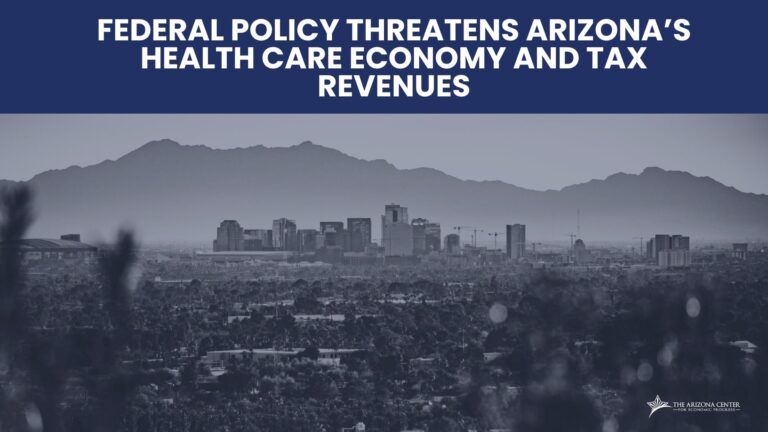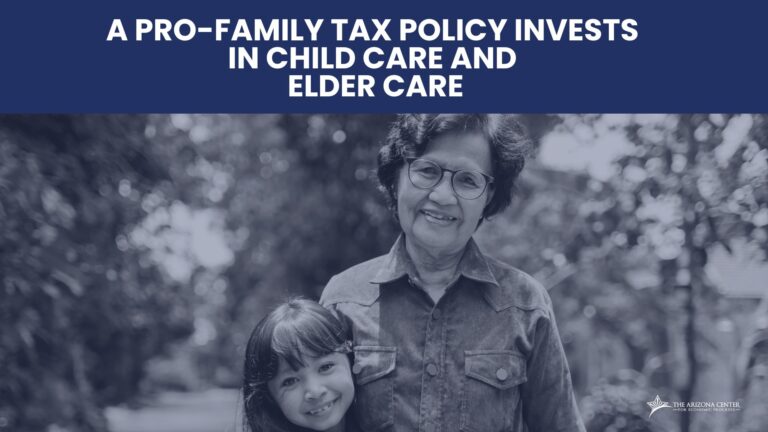
Creating more sales tax exemptions will make it harder for those in need.
Governor Hobbs and a bipartisan coalition of lawmakers are supporting a proposal that would make all purchases of tampons, sanitary napkins and other feminine hygiene products exempt from sales tax. It is estimated the exemption would reduce state revenues by $25 million annually, meaning less revenue to support critical needs like public schools, health care, and resources to make child care and housing more affordable. A sales tax exemption on feminine hygiene products will not create a fairer tax system unless the revenue that is lost is replaced by revenue from something else - repealing some of the dozens of sales tax loopholes that largely benefit corporations and the rich would be a good place to start.
The state sales tax accounts for 46% of all state general fund revenues. Massive income and property tax cuts for corporations and the rich in recent years have created more reliance on the sales tax to fund state government. In addition to income and property tax cuts, previous legislatures have created dozens of sales tax loopholes that shrink the sales tax base and reduce state revenues by millions annually. For example, Arizona currently provides that purchases of private jet timeshares and certain purchase of fine art are exempt from paying sales tax. If someone can afford to purchase a private jet timeshare or fine art, they can afford to pay the sales tax on those purchases. Similarly, previous state legislatures have passed dozens of sales tax exemptions that reduce the cost of doing business for some of Arizona’s largest and most profitable corporations. In addition to millions of dollars in other tax breaks given to corporations like Microsoft, Apple, American Express and META to build data centers in Arizona, these corporations do not have to pay sales tax on any of the computer equipment used to operate those centers. Another loophole gives gas utility companies a sales tax exemption for the purchases of 4-inch pipes used to deliver their products.
These are just a few examples of the many, misguided sales tax loopholes that lawmakers could repeal to offset the revenue which will be lost from a sales tax exemption on feminine hygiene products. Giving more sales tax exemptions without asking others to pay their fair share will only make it more difficult to adequately fund public education, health care, housing supports and other critical needs in the future.



